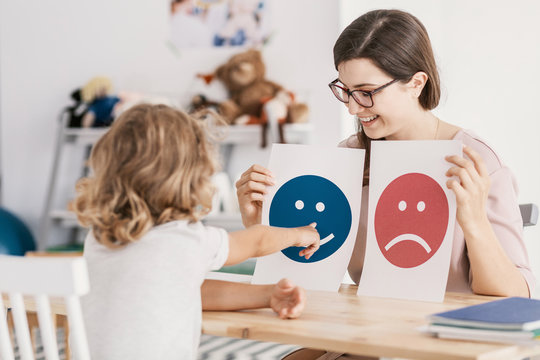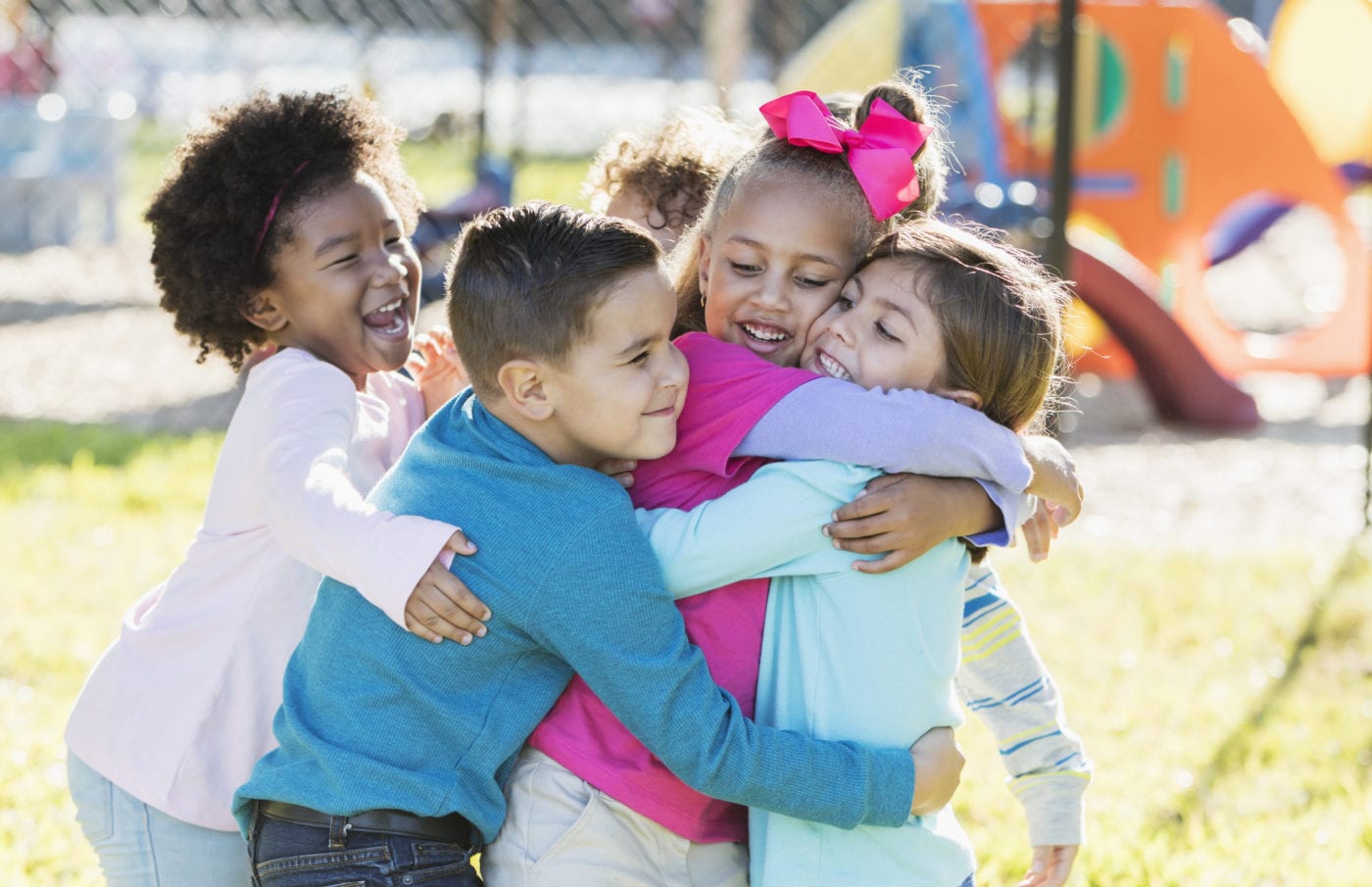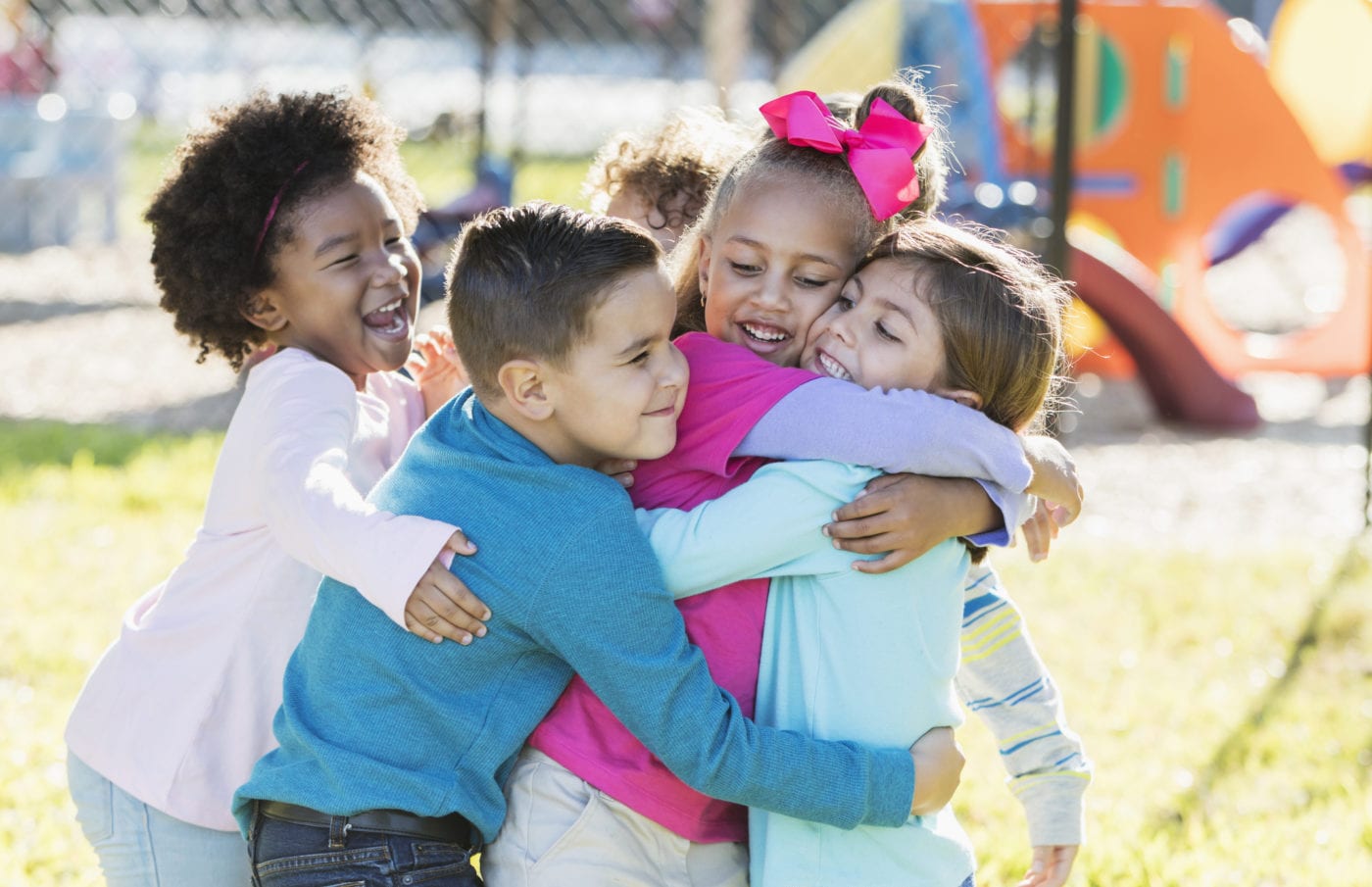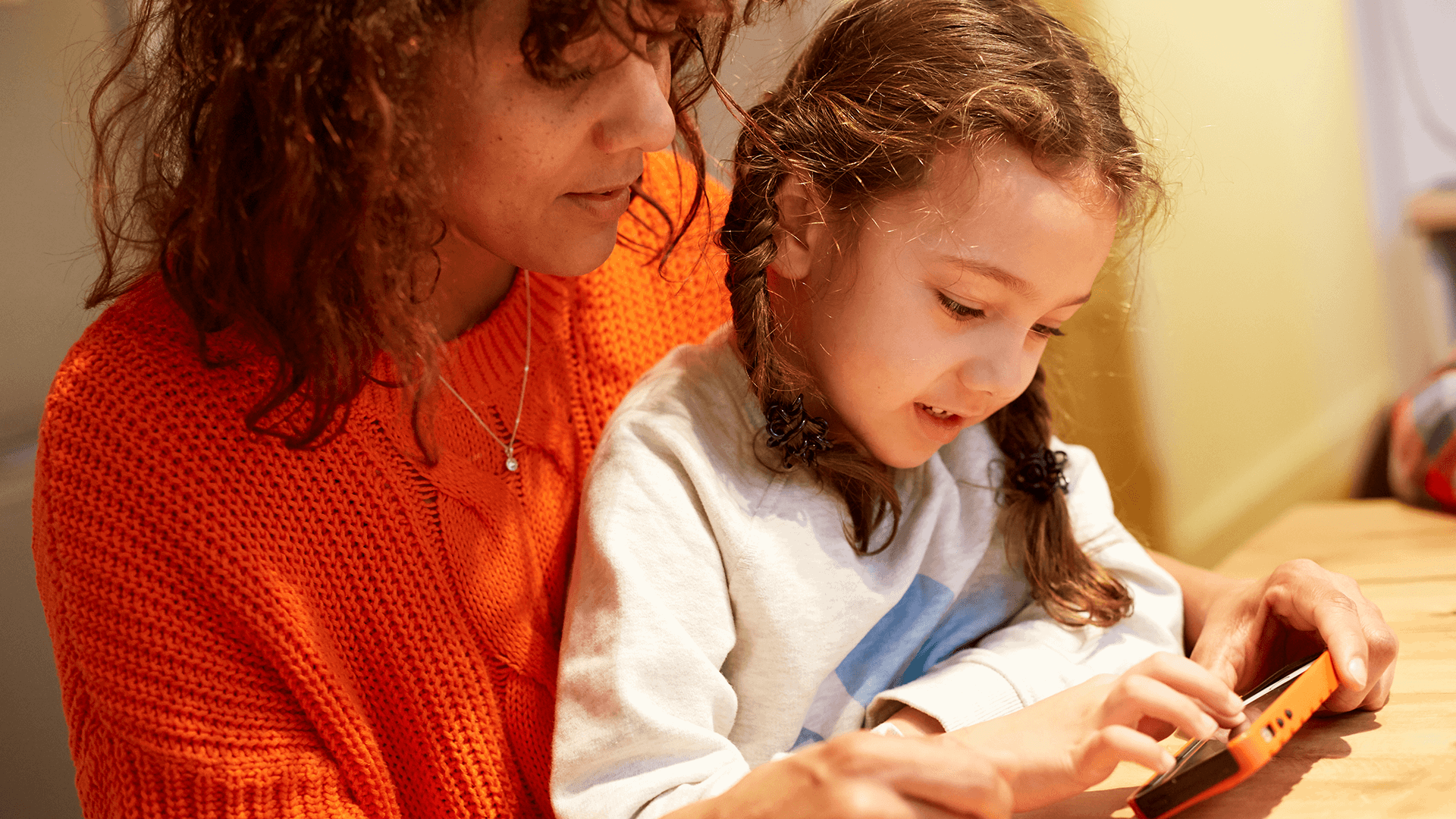Three Key Activities to Elevate Your Childs EQ
To elevate your child’s emotional intelligence (EQ), focus on building emotional awareness, practicing empathy and compassion, and teaching conflict resolution skills. Encourage them to identify and express feelings, engage in acts of kindness, and communicate effectively. These activities lay the groundwork for better social interactions and deeper connections. By fostering emotional intelligence early on, you help them navigate relationships and understand others better. Implement these key practices consistently to support your child’s emotional growth and overall well-being. More strategies are available to further enhance their EQ development.
Key Takeaways
- Encourage emotional awareness through labeling feelings.
- Practice empathy and compassion through acts of kindness.
- Teach conflict resolution skills with effective communication.
- Foster mindfulness and self-reflection for emotional regulation.
- Develop social skills through play-based interactions.
Building Emotional Awareness

To help your child develop emotional awareness, encourage them to identify and label their feelings using simple and relatable examples. Emotional intelligence is essential for successfully managing social interactions and understanding oneself. By fostering self-awareness, you’re laying the foundation for empathy building and emotional literacy.
Start by introducing basic emotions like happiness, sadness, anger, and fear. Ask your child how they feel in different situations and help them associate those feelings with the corresponding emotion. For example, when they lose a game, you can say, ‘It’s okay to feel disappointed when you don’t win.’
Empathy building can be enhanced by discussing how others might feel in certain scenarios. You could say, ‘How do you think your friend feels when you share your toys with them?’ This encourages your child to take into account others’ emotions, contributing to their emotional intelligence.
Practicing Empathy and Compassion
Let’s explore how practicing empathy and compassion can shape your child’s emotional intelligence.
By engaging in acts of kindness and understanding others’ feelings, your child learns to empathize with different perspectives.
Cultivating compassion not only helps them connect with others on a deeper level but also fosters a sense of community and support.

Empathy in Action
Engaging in activities that encourage empathy and compassion is a valuable way to help your child develop their emotional intelligence. Empathy exercises and interactive games can be powerful tools in nurturing these essential skills.
By engaging in real-life scenarios through play or discussion, your child can learn to understand and share the feelings of others.
Encourage your child to participate in activities that promote empathy, such as role-playing different perspectives or discussing emotions in various situations. Interactive games that require cooperation and understanding of others’ feelings can also be beneficial in building empathy skills.
Through these experiences, your child can learn to recognize emotions in themselves and others, develop better communication skills, and build stronger relationships.
Compassion Cultivation
Encouraging your child to cultivate compassion involves actively practicing empathy and understanding towards others in their daily interactions.
Kindness exercises can be a great way to instill compassion. Encourage your child to perform small acts of kindness, like helping a friend in need or showing appreciation to others.
By engaging in empathy games, such as role-playing scenarios where they can put themselves in someone else’s shoes, your child can develop a deeper understanding of others’ feelings and perspectives.
Compassion activities are essential for nurturing emotional intelligence. Teach your child the importance of listening attentively to others, offering support, and showing genuine care.
Engaging in practices that promote compassion can help your child build stronger relationships and foster a sense of community.
Teaching Conflict Resolution Skills
Teaching conflict resolution skills is essential for children to navigate social interactions effectively and build healthy relationships. By equipping your child with tools like effective communication and problem-solving skills, you empower them to address conflicts in a constructive manner.
Encourage your child to express their thoughts and feelings calmly, listen actively to others, and work together to find mutually beneficial solutions.
To enhance their communication skills, encourage your child to use ‘I’ statements to express their emotions and needs without blaming others. Teach them the importance of active listening by paying attention to what the other person is saying and showing empathy towards their perspective.
Additionally, help your child develop problem-solving skills by brainstorming possible solutions together, evaluating the pros and cons of each, and making a decision collaboratively.
Encouraging Mindfulness and Self-Reflection

Developing mindfulness and self-reflection skills in your child is essential for their emotional intelligence growth and self-awareness. As a parent, practicing mindful parenting techniques can help your child cultivate self-awareness and emotional intelligence.
Encouraging your child to engage in introspection activities, such as journaling or taking a few moments each day to reflect on their thoughts and feelings, can aid in developing these vital skills.
Mindful parenting involves being present in the moment with your child, fostering a supportive and non-judgmental environment for them to explore their emotions. By modeling self-awareness and emotional regulation, you can demonstrate the importance of these skills to your child.
Encouraging mindfulness and self-reflection in your child can lead to improved emotional intelligence, better decision-making abilities, and enhanced relationships with others. It provides them with the tools to navigate complex emotions and situations with greater ease and understanding.
Through these practices, your child can develop a stronger sense of self-awareness and a deeper understanding of their emotions.
Developing Social Skills Through Play
To help your child enhance their social skills, consider incorporating play-based activities that promote interaction and cooperation with others. Playful interactions are vital for your child’s social development.
Encouraging them to engage in creative play with their peers can have a significant impact on their emotional intelligence. Through play, children learn valuable skills such as communication, empathy, and problem-solving, all of which are essential for building strong relationships in the future.
Setting up playdates or joining group activities can provide opportunities for your child to practice these social skills in a fun and supportive environment. Encourage them to take turns, share toys, and work together on tasks to foster cooperation and teamwork.
Cultivating Resilience and Coping Strategies
Cultivating resilience and coping strategies involves nurturing your child’s ability to bounce back from challenges and develop effective ways to manage stress. Teaching coping strategies early on can help your child build emotional intelligence and develop resilience.
Encourage your child to express their feelings openly and teach them healthy ways to cope with difficult situations. Self-care tips such as mindfulness practices, physical activity, and creative outlets can also aid in resilience building.
When your child faces setbacks, guide them in reframing negative thoughts into positive ones, helping them see challenges as opportunities for growth. Encourage problem-solving skills and teach them to break down overwhelming tasks into manageable steps.
Fostering Emotional Regulation Techniques
Teaching your child techniques like breathing for calm and mindfulness practices can help them manage their emotions effectively.
These methods empower children to recognize their feelings and respond in a healthy way, fostering emotional regulation skills.

Breathing for Calm
Practice deep breathing to help your child regulate their emotions and find calmness during challenging moments. Mindful breathing and relaxation techniques are powerful tools for stress management and fostering emotional regulation. Encourage your child to take slow, deep breaths in through the nose and out through the mouth when they feel overwhelmed or upset. This simple practice can have a profound impact on their ability to navigate intense emotions.
Teaching your child mindfulness techniques like deep breathing can enhance their self-awareness and emotional resilience. By focusing on their breath, they learn to center themselves in the present moment, allowing them to respond to difficult situations with clarity and composure. Regular practice of deep breathing can also help reduce anxiety and promote a sense of calmness.
Mindfulness Practices
Enhance your child’s emotional regulation skills through engaging in mindfulness practices that promote self-awareness and composure during challenging moments.
Mindful breathing and relaxation techniques can help your child learn to calm their mind and body when feeling overwhelmed or anxious. Encourage your child to take deep breaths, focusing on the sensation of air entering and leaving their body. This simple practice can be a powerful tool for managing emotions.
Incorporating mindful eating and sensory awareness into your child’s routine can also support their emotional regulation. Encourage them to pay attention to the colors, textures, and flavors of their food, fostering a deeper connection to the present moment. This practice not only promotes healthy eating habits but also cultivates mindfulness in everyday activities.
Promoting Healthy Communication Patterns
Establishing clear and respectful communication patterns at an early age can greatly impact your child’s emotional intelligence development. By practicing active listening and providing positive feedback, you can create a safe space for your child to express their thoughts and feelings openly. Encourage your child to share their emotions without judgment, and validate their feelings to show them that it’s okay to experience a range of emotions.
Teaching conflict resolution skills is essential in promoting healthy communication patterns. Help your child understand the importance of finding peaceful solutions and encourage them to communicate their needs effectively. By modeling effective conflict resolution strategies yourself, you can show your child how to navigate disagreements in a constructive manner.
Emotional validation is vital in fostering a supportive environment for your child to develop their emotional intelligence. Acknowledge and empathize with your child’s feelings, even if you may not agree with them. By validating their emotions, you can help them build confidence and a sense of security in expressing themselves.
Frequently Asked Questions
How Can I Help My Child Cope With Fear of Failure?
You can help your child cope with fear of failure by building resilience through positive reinforcement, encouraging growth mindset by praising effort over outcome, and providing a safe space for them to express emotions and learn from setbacks.
What Role Does Nature Play in Developing Emotional Intelligence?
To boost emotional intelligence, outdoor exploration fosters empathy and connection with nature. Engaging in mindfulness practice outdoors can enhance self-awareness and regulation. Encourage your child to immerse themselves in nature for a holistic EQ development.
Are There Specific Techniques to Teach Children Active Listening?
To teach active listening, you can practice mindful communication by encouraging eye contact, nodding, and reflecting back what you hear. This builds empathy, enhances emotional regulation, and fosters better relationships, helping your child connect and understand others.
Can Siblings Play a Role in Improving Emotional Skills?
Certainly, siblings play a vital role in your emotional growth. Through daily interactions, they shape your understanding of empathy, communication, and conflict resolution. Peer influence within sibling dynamics greatly impacts your emotional development.
How Do I Balance Independence and Seeking Help in Children?
When guiding your child’s growth, balance is key. Offer support while fostering self-reliance. Encourage autonomy and seeking help when needed. Parental guidance in this dynamic helps children develop independence within a safety net of support.
Conclusion
Remember, developing your child’s emotional intelligence is a journey that takes time and effort.
By consistently engaging in activities that promote emotional awareness, empathy, and conflict resolution, you’re setting your child up for success in managing their emotions and relationships.
Keep practicing these key activities and watch as your child grows in their ability to understand and manage their emotions effectively.
Your commitment to their emotional development will make a lasting impact on their future well-being.

Hey there! 👋 I’m a proud mom and passionate writer, sharing my parenting journey. 📝 Join me as I navigate the ups and downs of motherhood, offering tips, advice, and a sprinkle of humor along the way. 🌟







